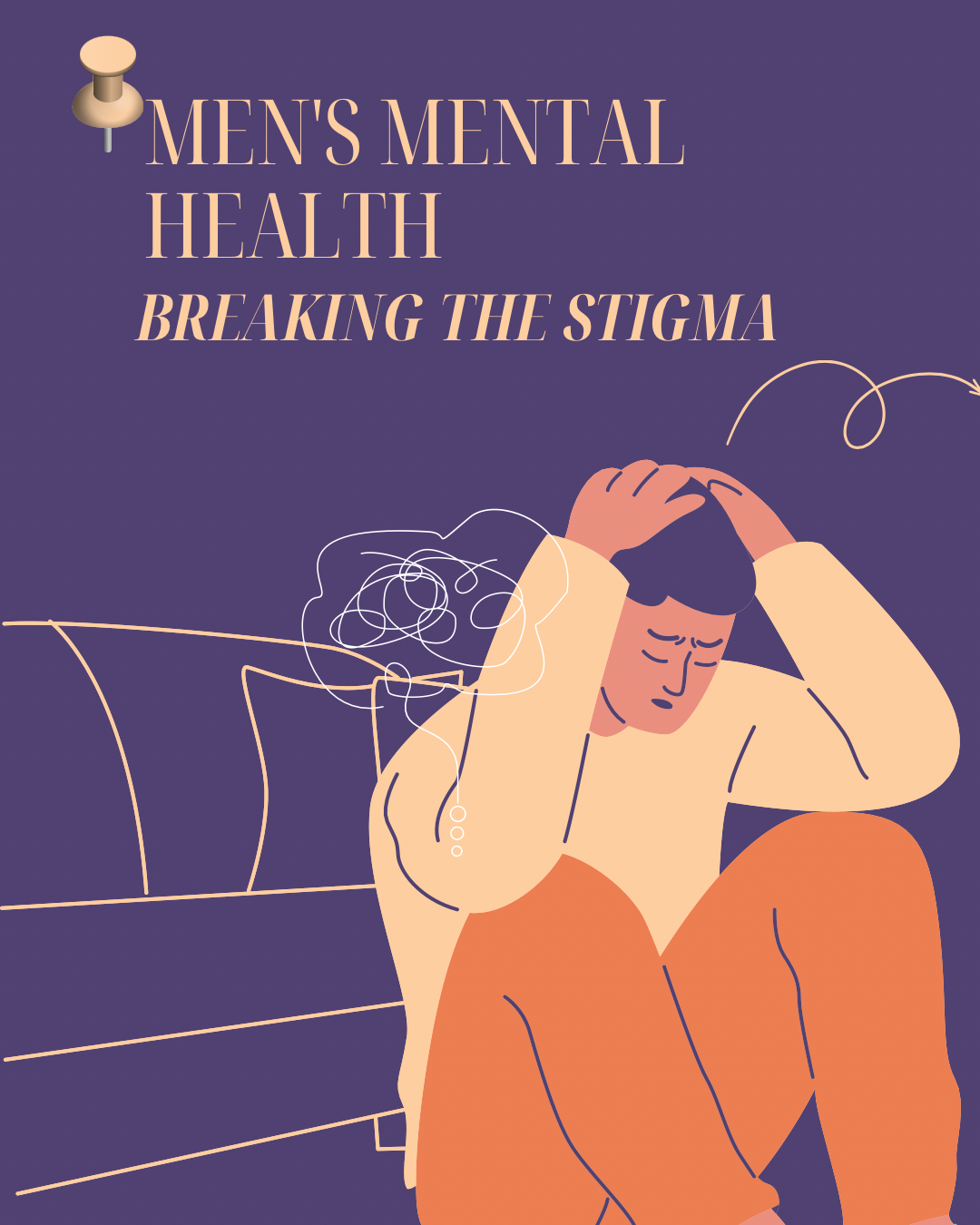MEN'S MENTAL HEALTH: BREAKING THE STIGMA

In a world where men are often expected to be unshakable pillars of strength, mental health struggles have become a silent epidemic. While 1 in 8 men experience mental health problems, only 36% seek professional help. The statistics paint a grim picture: men account for 75% of suicide deaths globally, and in many African communities, the numbers are rising.
The problem isn’t just about mental health—it’s about stigma. From childhood, boys are taught to "man up," to hide pain, and to equate vulnerability with weakness. These outdated norms create a dangerous cycle of silence, isolation, and untreated suffering.
Why Men Don’t Speak Up
1. Cultural Expectations – Traditional masculinity often frames emotional expression as a flaw.
2. Fear of Judgment – Many men worry they’ll be seen as "weak" or "unreliable" if they admit to struggling.
3. Lack of Safe Spaces – Few platforms exist where men can openly discuss mental health without ridicule.
4. Misdiagnosis – Men often present symptoms differently (anger, irritability, risk-taking) leading to overlooked cases.
The Cost of Silence
The repercussions extend beyond individuals—families, workplaces, and communities suffer when men are left to struggle alone:
- Broken relationships – Untreated mental health issues strain marriages and parenting.
- Workplace decline – Depression and anxiety lead to decreased productivity and absenteeism.
- Physical health decline – Chronic stress contributes to heart disease, hypertension, and weakened immunity.
How We Can Change the Narrative
1. Redefine Strength – True strength isn’t suppressing emotions; it’s having the courage to seek help.
2. Create Safe Spaces – Encourage open discussions in barbershops, workplaces, and social circles.
3. Lead by Example – When influential figures (athletes, leaders, celebrities) share their struggles, it gives others permission to do the same.
4. Educate Early – Teach boys emotional literacy just as we teach resilience.
A Call to Action
At The Catalyst Collective, we believe mental health is a human issue—not a gendered one. Breaking the stigma starts with each of us:
- If you’re struggling: You’re not alone. Reach out to a trusted friend or professional.
- If you know someone struggling: Check in. Sometimes, "How are you, really?" can save a life.
- If you’re a leader: Normalize mental health conversations in your spaces.
The Bottom Line:
Men’s mental health isn’t a niche issue—it’s a societal imperative. By dismantling the stigma, we don’t just save men; we build healthier families, workplaces, and communities.
Need Help?
- Online Resources: https://msha.ke/thecatalystclective/
---
What’s Next?
Stay tuned for our Men’s Mental Health Webinar on June 28th, featuring experts Kenneth Nthaka and Tom Mackey. Together, we can rewrite the narrative.
Comments
Post a Comment